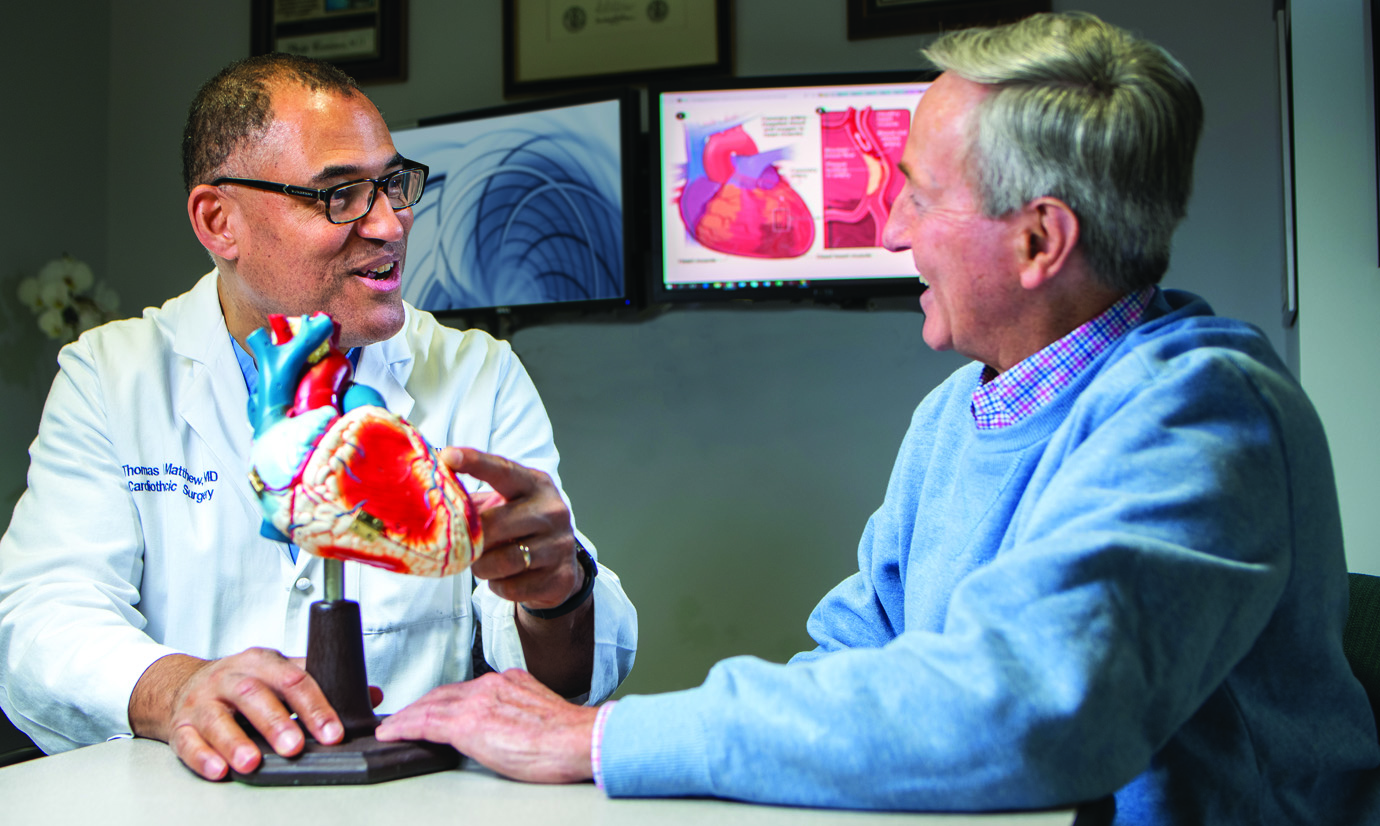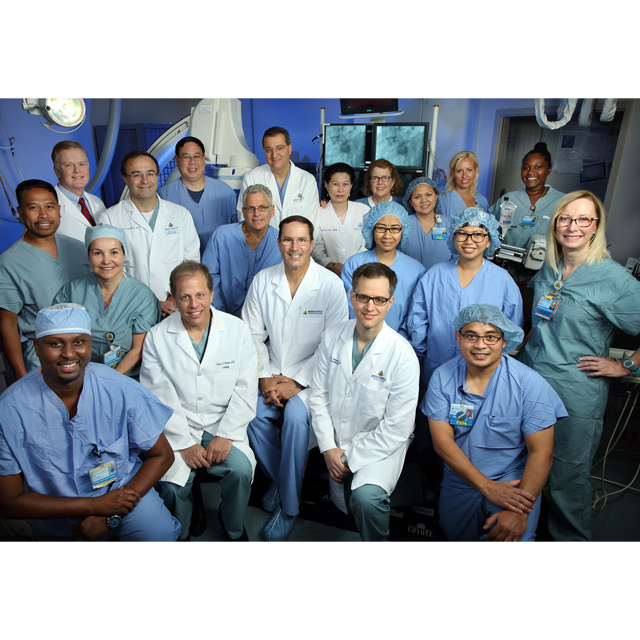(Above image: Rodney Vieira shows off his Boston Marathon medal and shares a laugh with, from left, cardiac rehab program manager Jeanmarie Gallagher, clinical exercise physiologist Robyn Minchik, M.S., and psychotherapist Marlys Rixey, Pys.D.)
In November 2009, Rodney Vieira was raking leaves in his Chevy Chase backyard when he began gasping for breath. Suddenly, his body felt heavy and he could barely put one foot in front of the other.
Although he was about 40 pounds overweight and had a family history of coronary disease, Vieira thought he was too young, at 41, to be having a heart attack.
But when his left arm began tingling, he recognized the classic heart attack symptom and shouted to his wife, Trish, to call 911.
He took an aspirin and laid down, waiting for help. “The pain was just excruciating,” he recalls. “It felt like somebody was stabbing me in the heart.”
Vieira was rushed by ambulance to Suburban Hospital, where cardiologist Nancy Davenport, M.D., inserted three stents in the occluded coronary artery to re-establish normal blood flow to the heart.
Vieira is an attorney and spends hours each day sitting in front of a computer. As he recovered, he thought about his wife and two young daughters, and vowed he would find time to exercise. Since he likes to have goals, he decided he would someday run the Boston Marathon.
“I wasn’t a runner so I had no idea what a big deal it was,” he now admits. The hospital’s cardiac rehabilitation program proved essential to his plan.
Encouraged by program manager Jeanmarie Gallagher, M.S., Vieira began exercising at the hospital’s rehabilitation program gym shortly after his discharge.
“The rehabilitation program was great for a couple of reasons,” he says. “I was kind of depressed at the time, and it was nice to go there and have these cheerful medical professionals talk with me about my concerns. Also, I liked knowing that if I had another heart attack, the emergency room is like 100 feet from the treadmill.”
Cardiologists refer Suburban Hospital patients to the program after a cardiac event or surgery. Participants exercise 36 times over 12 weeks in a fully equipped gym, monitored by clinical exercise physiologists who track heart rate and cardiac rhythm. Also on staff are nurses and a licensed counselor, who work together to help patients manage their heart disease and cope with the common side effects of anxiety, depression or post-traumatic stress disorder.
Between 300 and 375 new patients participate in the program each year, and approximately 100 are in the monitored exercise program at any given time, says Gallagher. About 200 continue exercising in the supervised setting beyond the 36 sessions.
“The program offers extraordinary support,” says Gregory Kumkumian, M.D., medical director of the cardiac catheterization laboratory and cardiac rehabilitation program at Suburban Hospital. And he notes that patients who complete the program have a substantially reduced risk for a repeat cardiac event.
“Cardiac rehab goes a long way toward helping people cope with depression and anxiety, which a lot of people go through after these events,” says Kumkumian. “The rehabilitation itself is a form of therapy.”
That was Vieira’s experience. “Even though most people in the rehabilitation program were probably 20 years older than me, I bonded with a lot of them,” says Vieira, who is no longer overweight. “I got nutrition advice, which was great. And I got advice about managing stress.
“I had hardly ever exercised in my life, so I didn’t know what to do. It was nice to have someone put a plan together, telling me what speed to run on the treadmill and how much weight to lift.”
On Your Mark, Get Set, Go!
When Vieira completed the cardiac rehab program, he continued his path toward the Boston Marathon on his own. He joined a local running group, the Montgomery County Road Runners, and soon graduated from a 5K to a half-marathon. He ran marathons in 2011, 2014, 2016 and 2017, but he wasn’t fast enough to qualify for Boston. Then, in March 2018, he ran a marathon in Newport News, Virginia, and qualified for the Boston Marathon with a time of 3 hours, 23 minutes.
The next month, nearly 10 years after his heart attack, Vieira, 51, ran the Boston Marathon in 3 hours, 43 minutes. “My hands hurt worse than my feet because I was high-fiving people the whole way,” he says.
Later that spring, Vieira returned to Suburban Hospital to show his coveted marathon medal to the clinicians who helped him get there. “I wanted the people at the cardiac rehab center to see that I had done it, because they helped make it possible,” he says.



